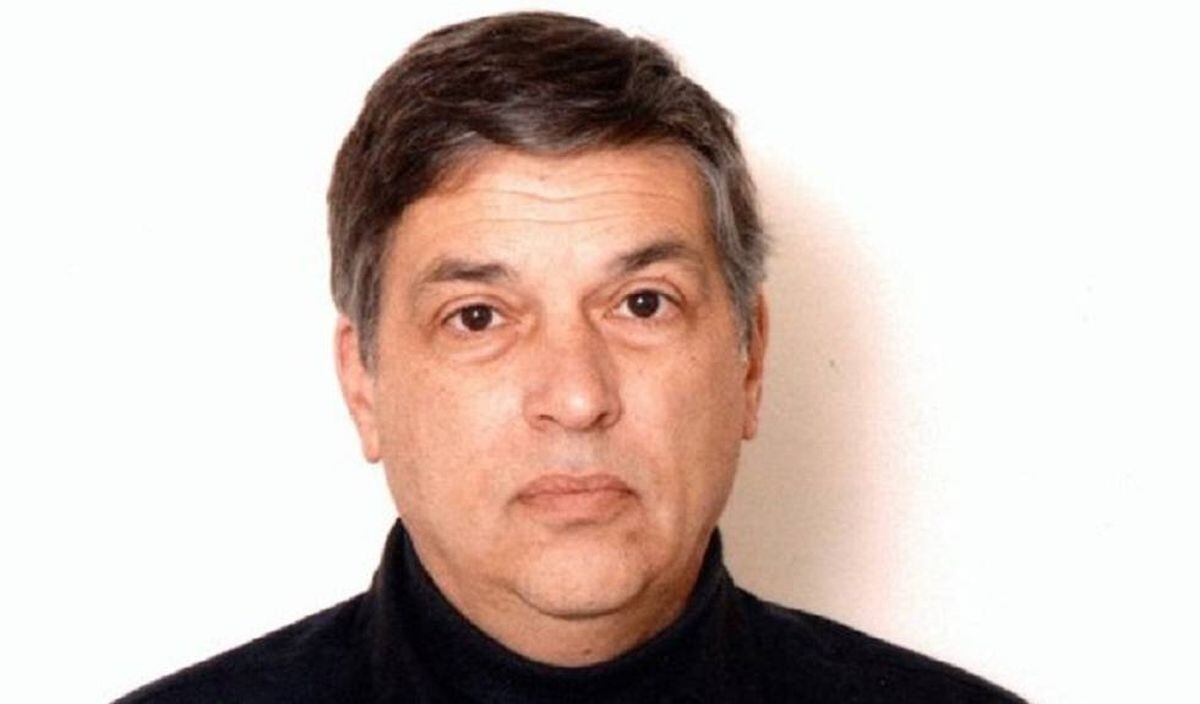FBI agent Robert Phillip Hanssen in a file photograph. AFP
Robert Hanssen was an FBI agent. An apparently exemplary citizen, convinced Catholic, member of Opus Dei, loving husband and father of six children. But behind that façade, and his aliases – "Ramón García" or "B" – one of the most valuable American spies for the Soviet Union and Russia was hidden for decades until his capture in February 2001. Sentenced to life in prison in 2002, the man the FBI describes as "the most damaging spy for the US intelligence services" died Monday in a federal prison in Colorado at age 79, for causes that have not been disclosed.
According to a statement from the prison, Hanssen was found unconscious in the morning in his cell at the ADX Florence prison, one of the highest security in the United States, where some of the criminals considered most dangerous are held. He did not respond to attempts to revive him and was pronounced dead shortly thereafter.
Robert Hanssen is arrested by the FBI at his home in Vienna, Virginia, on February 18, 2001.CNN (Getty Images)
The life of one of the men who most harmed the US secret services and the national security of his country over more than three decades was thus extinguished in prison. He acted, apparently, moved not by conviction – his Christian principles made him a convinced anti-communist – but by resentment (he felt wasted as an FBI analyst) and by money: for the sale of some of the FBI's greatest secrets he received huge payments of diamonds and money, a lot of money: 1.4 million dollars at the time, for a man whose salary in 1985 was around $ 46,000 per year (equivalent to about 130,000 euros today).
Some of that money was apparently used to pay for running household expenses and her children's tuition fees in private schools. Another part could go to dancers and strippers, one of the hobbies of his double life – after his arrest he was also found clandestine recordings of sexual encounters with his wife – incompatible with his upright public personality.
Robert Hanssen's ID and contact card in a display case at the FBI academy in Quantico, Virginia, in May 2009.PAUL J. RICHARDS (AFP)
It was due to him that the Russian secret services knew of the existence of a tunnel under the embassy of his country in Washington, used by the FBI to obtain information about the rival power. He also sold U.S. plans in case of a possible nuclear war and the identities of Russian informants for the CIA and FBI. At least three were executed as a result of Hanssen's murmurs. Among them, the famous General Dmitri Poliakov, nicknamed "Top Hat" and who supplied intelligence data to Washington between the sixties and eighties.
Hanssen delivered, in the words of a 2007 FBI report, "thousands of pages of highly classified documents, and dozens of computer floppy disks detailing U.S. strategies in the event of nuclear war, fundamental advances in military weapons technology, information on active espionage cases, and many other aspects of the U.S. intelligence community's counterintelligence program against the Soviets."
His access to FBI information allowed him to systematically evade for years any suspicion that he might be the mole who was leaking so much valuable information. Behind closed doors was his façade as a civil servant, a pillar of the conservative Catholic community around Washington. Not even his Soviet contacts knew his true identity, only his aliases.
FBI agents remove evidence from Robert Hanssen's home in Vienna, Virginia, on Feb. 20, 2001.Alex Wong (Getty Images)
"The FBI entrusted him with some of the most sensitive secrets of the U.S. government and instead of feeling he had to live up to this honor, Hanssen allegedly abused and betrayed that trust," then-FBI Director Louis Freeh said when the spy was finally arrested in 2001.
Hanssen had joined the FBI in 1975. Since 1979 he began to supply information to the enemy power but his wife discovered him one night with compromising papers in the basement of their house. He told her that it was a trap that the Bureau prepared for Soviet spies, but she forced him to confess to an Opus priest and renounce these activities. The abstinence did not last long. In 1985 he was assigned to a key office of the Federal Police: the counterintelligence department in New York, in charge of detecting possible foreign spies. It was a promotion. But a very expensive promotion for a large family in one of the most expensive cities in the United States. He himself again offered his services to Soviet military intelligence.
In 1994, U.S. intelligence arrested another notorious spy, Aldrich Ames, a senior CIA official credited with supplying Moscow with the information that led to the arrest and execution of ten Russian informants. It seemed that the author of the leaks that led the intelligence community upside down had been located. Soon those responsible for internal affairs realized that this was not the case. Another "mole" remained loose.
An illustration of the trial in which Robert Hanssen was sentenced to life imprisonment on May 10, 2002 in Alexandira, Virginia. William Hennessy Jr. (AP)
Investigators eventually obtained a document linking the agent to Russian secret services. An urgent investigation was launched: Hanssen was about to retire, and he had to be caught red-handed. He was put in charge of a fake project at FBI headquarters in Washington, where he was under permanent surveillance.
Finally, the spy was arrested on February 18, 2001 when he left a park in Fairfax County, in the state of Virginia and near Washington, after having left documents in a hiding place for his contacts. His comment was, "Why have they taken so long?"
Follow all the international information on Facebook and Twitter, or in our weekly newsletter.

